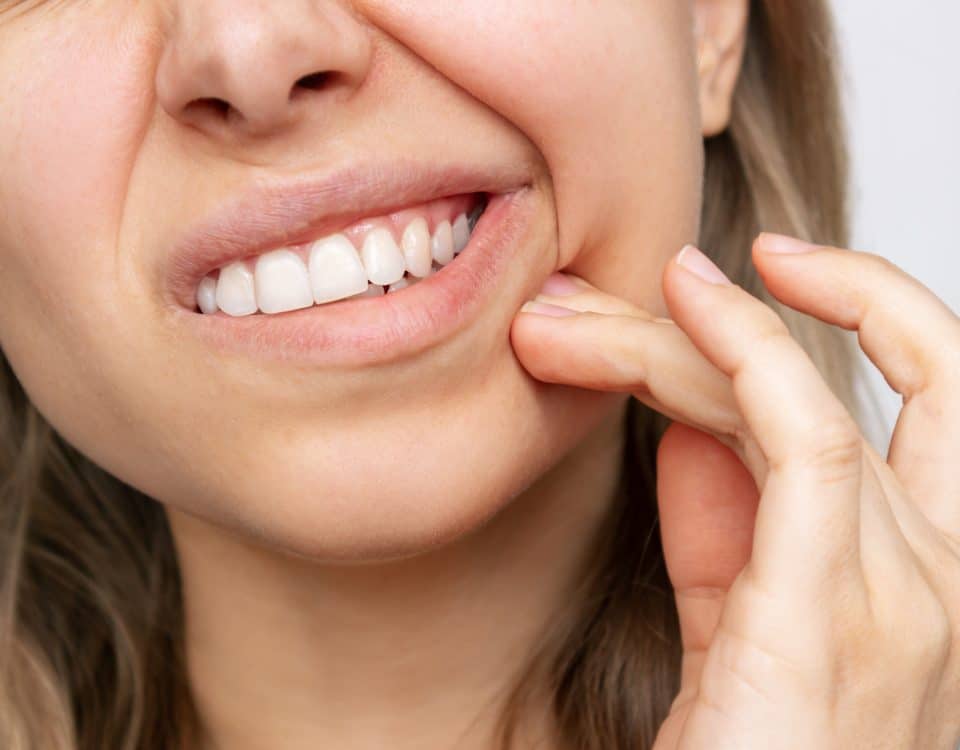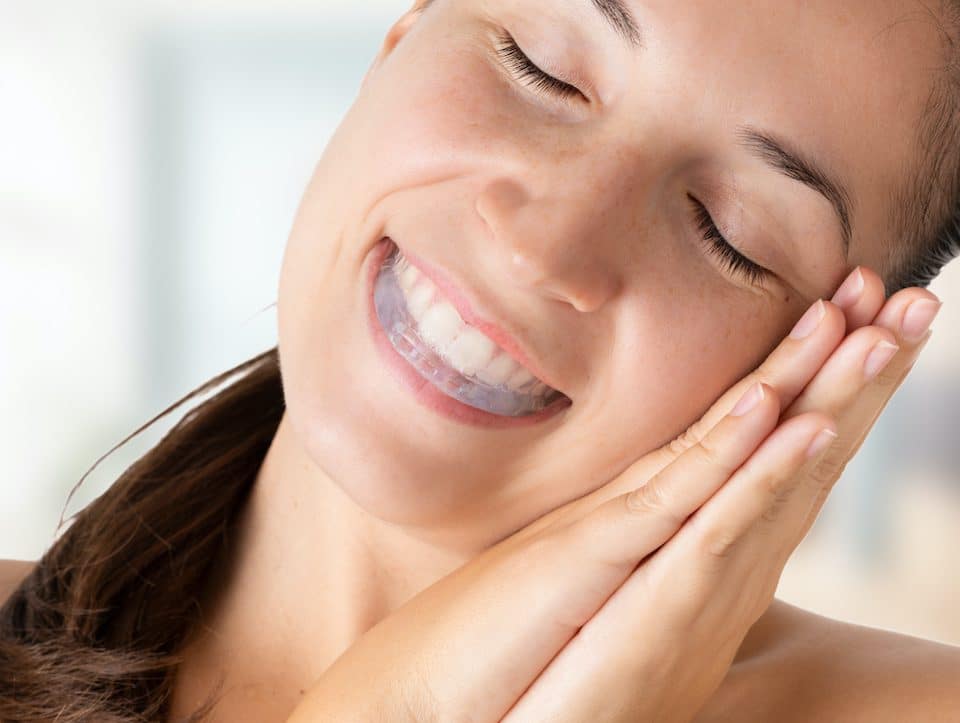Guard Your Teeth: The Potentially Harmful Effects of Teeth Grinding

Toothaches: When are They Serious?
February 10, 2020
Technology and the Dentist
February 25, 2020Teeth grinding, formally known as bruxism, is a medical condition in which you grind or clench your teeth together. During the day, you can unknowingly clench your teeth together when you’re hard at work or stressed, and at night when you’re sleeping you can grind them together without ever realizing it in the moment. It’s estimated that 40 million children and adults are affected by teeth grinding.
Clenching vs. Teeth Grinding
The American Academy of Oral Medicine defines these two conditions separately, though some people use the terms interchangeably.
Bruxism, as known as grinding, involves moving the jaw while the teeth are pressed to each other. If you grind your teeth often, you’ll begin to notice visible wear on your teeth. Your dentist can typically tell you’re a teeth grinding as first glance of the teeth.
Clenching is when you hold your teeth together and keep the jaw muscles tight. While not as harmful to your teeth as grinding, clenching can cause things like jaw pain and soreness. In some instances, it might even cause injury to the joints in your jaw.
What Causes Teeth Grinding?
Do you grind or clench your teeth together? This can cause a multitude of problems if you don’t stop this bad habit. Although not always harmful, if you grind your teeth often it can be linked to dental damage, interrupted sleep, and jaw pain. So, why do we grind our teeth? According to the ADA, it can be attributed to:
- Stress and anxiety
- Sleep disorders
- Abnormal bite
- Temporomandibular joint problems (TMJ)
Teeth grinding can also be caused by misaligned teeth, allergies, or other mouth irritations.
Teeth Grinding Symptoms
Symptoms of these conditions as briefly mentioned above can include jaw pain and soreness, but in addition it can also cause headaches, sore and damaged teeth, and:
- Grinding sounds at night
- Consistent pain in the face
- Lower jaw swelling
How Do You Fix Teeth Grinding?
If you’re grinding your teeth at night and waking up with a sore mouth, your most likely a good candidate for a mouth guard to protect your teeth overnight. In more serious cases, the dentist might also recommend taking a muscle relaxant before you sleep.
If you’re clenching your jaw during the day, it’s important to bring attention to it and then try to fix the problem. Most of the time, it’s just a bad habit that you have to actively try and correct. If you’re clenching is brought on by stress of anxiety, then seeking out a therapist might be what helps you correct the problem as they can help you mark what is causing you stress and how you can work to relieve it.
Night Guards
Night guards, or mouth guards, can help provide pain relief caused by teeth grinding and clenching. There are like retainers that cover either your bottom or top teeth, usually it’s one or the other, not both. The night guard acts as a cushion to your teeth, protecting them and allowing you to sleep unbothered. We take molds of your teeth and send them to a laboratory that specializes in making custom mouth guards. While you can find over the counter options at our local drugstores, it’s not recommended.
Having a night guard is necessary if you’re a teeth grinder because it helps protect your teeth’s surface from grinding together. Teeth grinding can have long-term harmful effects on your teeth, which is why it’s important to call your dentist.
When you grind your teeth, you apply such great force and pressure that serious problems can develop. Dentistry Today states that when you grind your teeth the pressure can equal 500 pounds per square inch. For perspective, when you bite a raw carrot you only you 28 pounds per square inch. That’s a big difference! Think about the toll that takes on your mouth.
It’s much easier to care for your night guard than it is to care for damaged teeth. Once you receive your custom-fitted night guard, you’ll be able to begin using it right away. It has low maintenance as all you have to do is clean it with a toothbrush and toothpaste, just like you do with your teeth. When not in use, we recommend you keep it in cold tap water to prevent bacteria from growing on it. Though they don’t last forever because teeth grinding will eventually take its toll, replacing a night guard is much easier than having to treat damaged teeth.
Quit Clenching with Stonebrook Family Dental
Dr. Varley strives to provide preventative care to help keep serious dental problems from occurring. A night guard will help you prevent oral injuries that can be sustained by teeth grinding. Call us today to make an appointment: (303)-872-7907.



